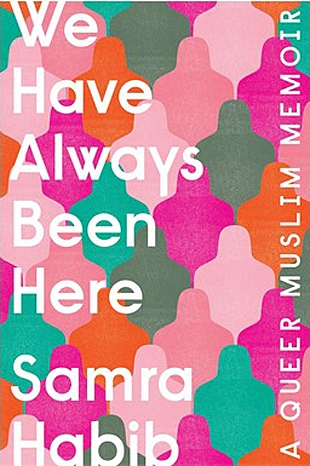“I became a little more adventurous with my look. I started going to a salon downtown that resembled a spaceship, where you were given an asymmetrical mullet no matter what you asked for and Depeche Mode and New Order blasted over the speakers. Inspired by the feeling of ownership over my body, I got my first tattoo, of the Japanese word for beauty (my fascination with the country and culture had only grown since ESL class with Ms. Nakamura). I felt a flicker of buried guilt as the tool pierced my skin, knowing that tattoos are forbidden in Islam. But by the time it healed, I was already thinking about what I’d get for my second.
“I’d started using LiveJournal and connected with a group of young feminist women of colour who were a bit older than me and had started their careers, mostly in media. Meeting people online was one of the few ways I could form connections with people I had something in common with. Alienated from my family and the mosque community, I’d become intensely aware of the lack of people of colour in my life and was trying to remedy that. I was certain that by doing so I would find comfort and finally be understood in my entirety.
“That summer, after weeks of exchanging ideas and messages online, some of the women made plans to meet for a picnic in a park. I showed up late from an afternoon shift at the Body Shop and added the container of mushroom pasta with congealed rose sauce I’d picked up from the grocery store to their array of gluten-free and vegan offerings. I quickly learned that although the group was strictly for women of colour, I was the only one who was not born in Canada. Many of them had the emotional and financial support of their parents, who had well-paying jobs and had never had to struggle with a language barrier.
“ 'What are some of the biggest challenges you’ve had to confront as a person of colour?' the ringleader, a brown girl with a Sleater-Kinney T-shirt, asked the group. One by one, the others in the circle shared how instances of racism and sexism had prevented them from getting the same opportunities in their careers as their peers. I straightened my back, which ached from being on my feet all day at the shop. The privilege of being second or even third generation wasn’t lost on me.
“By the time it was my turn to speak, I could feel myself shaking; I wondered if my voice would betray me. But I couldn’t bring myself to sugar-coat it. 'I guess the biggest challenges I’ve faced are escaping my arranged marriage and dealing with the fear that I’ll have to go on welfare like my parents,' I said, pulling blades of grass from the wet ground, not quite able to look any of the girls in the eye. Everyone was quiet, as if unsure what to say. Weighed down by their silence and inability to connect, I felt even more isolated.”
